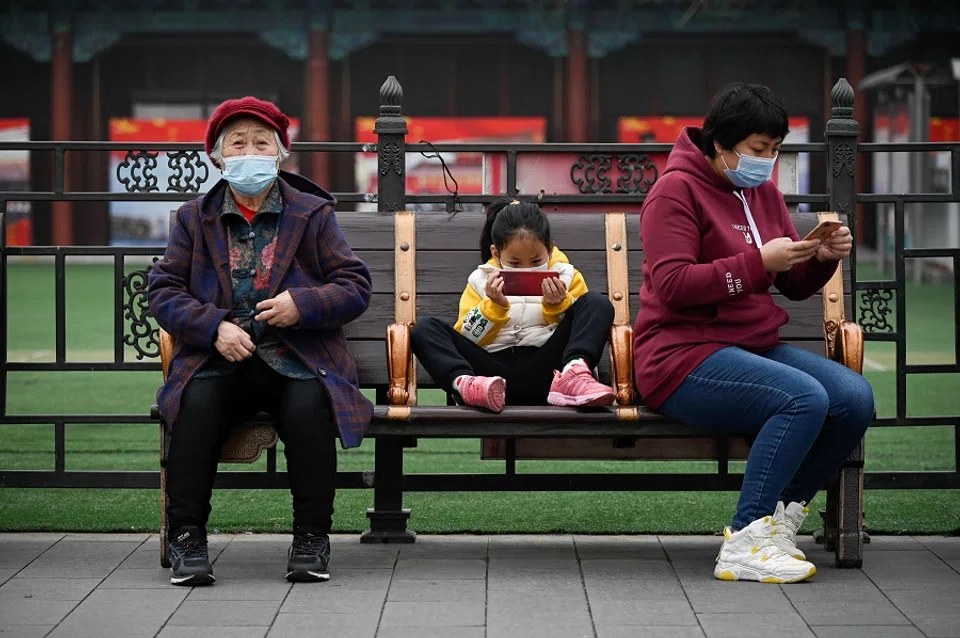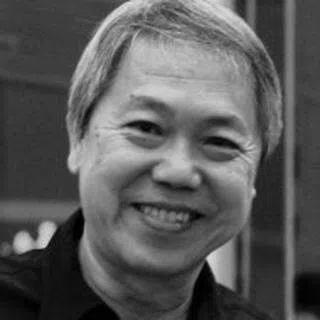A former Singapore journalist remembers a very different China in the 1980s
Former journalist Teo Han Wue chuckles as he recalls his first assignment in China covering an international Confucianism conference in Qufu, Confucius' hometown in Shandong. Telecommunications facilities then were a far cry from the advances in 5G or AI that China enjoys now. Even sending a facsimile was a comedy of errors.

Whenever I hear talk about new-fangled innovations such as 5G, nanochips and AI handphone features, which we all do ever so often these days, I always marvel at how far we have come from the days of typewriters and fax machines.
News about China becoming a leading player in these fields with its remarkable advances in telecommunication technology somehow makes my memories of using the telephone in China even more unforgettably hilarious each time I think about it.
When I first began writing for The Straits Times as a freelance art critic in the early 1980s, my reviews were all handwritten and then personally delivered to the newspaper office. On joining the newspaper later as a journalist, I wrote my pieces on the office typewriter before the newsroom became fully computerised a year or two later.

It was not until 1987 that I had my first assignment in China to cover an international Confucianism conference in Qufu, Confucius' hometown in Shandong. The venue at the spanking new Queli Hotel, built in 1986 and tastefully designed according to Confucian themes and aesthetics, was by far the best four-star guesthouse in the quiet small city.
In preparing for my trip I consulted experienced colleagues about practicalities. A senior editor gave this advice: for a backward place, just use backward methods. Others who had previously filed reports from Beijing could avail themselves of facilities of foreign news agencies such as Reuters. A broadcast journalist resorted to sending in his story through a 30-minute telephone call at the cost of more than S$1000.
Sending a facsimile from Confucius' hometown
Since where I was going was not Beijing or Shanghai, I had to scale down my expectations. I therefore took with me a small word processor, which looked like a portable typewriter, to adapt to conditions in Qufu that were deemed far inferior to Singapore. My photographer colleague brought his usual darkroom kit and fax machine capable of transmitting pictures.
We arrived at Qufu as a Singapore "contingent" comprising scholars, researchers, teachers, journalists and photographers. Throughout the journey I noticed my colleague from the Chinese newspaper lugging a portable fax machine in a bag as though she would not let it out of her sight. A few people we met actually offered to buy it off her on learning it was a fax machine; the device was probably something keenly sought by those doing business in China back then.

After a flurry of check-in formalities, the first thing most of us did in our hotel room was to book a call home. But everybody soon discovered things weren't so simple: our call either could not go through or took hours to connect. We could have guessed the operator being deluged with the sudden wave of bookings well beyond the hotel's or even the city's usual capacity.
David almost went nuts in his efforts to fax his picture back to office.
As part of the welcome, programme delegates were treated to a special dance performance called Confucius Capriccio at a local theatre, which was about the life of the sage. My photographer colleague David took some nice pictures and rushed back to his room to process and print them so that he could send them off quickly in time for the paper the next morning.
Though I managed to transmit the text of my report, it got completely garbled as I was later informed by my editor due perhaps to a technical glitch, David almost went nuts in his efforts to fax his picture back to office.
For me, it was relatively easier as it involved booking an international call to the office and plugging my word processor into the telephone socket as soon as the call was put through. For David, it turned out to be a nightmare because the transmission of photographs proved to be well beyond the understanding and experience of the operator at the hotel switchboard.

After printing the photograph he intended to send, he set up the print on his fax machine and booked a call to his colleague at the photo department. Once the call was connected, he asked his colleague at the other end to stand by for his transmission, which would take about 20 minutes to complete.
Lost in transmission
Within the first minutes of transmission, the lady at the switchboard "barged in" on the line and said rather impatiently, "Wei, wei, tongzhi! Nin shuohua ya! (喂,喂,同志!您说话呀! / Hello, hello, comrade, please go on, speak!)" She got so puzzled as to why this guest was keeping silent after all that hassle of finally getting through to Singapore. All she heard was the beeping signal of the picture in the process being transmitted. Obviously, it was the beeps that confused her, perhaps making her suspicious of this being something almost sinister.
I suddenly realised that I was actually in her bedroom - little wonder that she felt intruded upon.
The lady's curiosity effectively aborted the transmission. Though hopping mad, David tried to explain calmly to her that he was not speaking on the phone but was transmitting a photograph and it was imperative that she stay clear of the entire process. The second transmission was disrupted again in the same manner. It was becoming clear that she was absolutely clueless as to what was going on as she still insisted on coming in, saying, "Wei, wei! Zenme bu shuohua ya? Nin youwanmeiwan de? (喂,喂!怎么不说话呀?您有完没完的? / Hello, hello! How come you are not speaking? And how much longer will you go on?)"
David could no longer keep his cool. He said angrily, "Ni yiwei, wo jiu meiwanliao! (你一喂,我就没完了! / I will not be done the moment you say 'wei'!)" He then asked for my help to go and reason with the operator. I found her in a room where she was manning a switchboard, But she was visibly upset that I showed up at her door. I suddenly realised that I was actually in her bedroom - little wonder that she felt intruded upon.

I couldn't quite understand what she was trying to tell me as I was anxious to impress upon her that she should under no circumstances get on the line as long as David was transmitting his photograph. I thought I'd settled it when I left her room only to see David getting even more exasperated than before in another round of transmission. The evening was getting late and David was completely worn out. He just gave up: "I'm getting out of here before I go crazy!"
The possible reason why David's transmission kept getting disrupted, as I later learnt, was that an international call from Qufu could not have been connected directly to Singapore. It had to go through Shanghai. Someone even suggested that it could have gone via Jinan, the capital city of Shandong en route to Shanghai in the first place.
Poor David did not manage to send a single picture on that assignment! I imagined the beeps from his fax machine must have confounded switchboard operators in more than one city in China.
A close shave
One evening after I had completed my report on the word processor, I decided to spare myself the trouble of transmitting it by doing a printout for the telex room to send for me while I attended a grand banquet which I did not want to miss. The telex lady greeted me sweetly and readily agreed to help whereupon I handed her my 300-word story about the day's proceedings.

While I don't recall much about the dinner attended by delegates from all over the world, I remember how uneasy and anxious I felt sitting there worrying all the time about how that telex girl was coping with the task I'd given her. Since I could not quite enjoy the sumptuous dishes being served, I made my way to the telex room again.
Though knowing no English at all she took on the task in her stride with a spirit I would describe as "admirable".
The evening was getting on and I would have expected her to be nearly done. She had been at it for almost two hours. When I enquired about her progress, she was in full concentration, hunched over the teleprinter typing away ever so slowly and starting only on the third line of the page.
What? Panic gripped me as I was frantically thinking about how I should get out of such a dire situation.
I tactfully asked her if she would move over and allow me to continue. When I sat down to start typing on the telex machine, both of us felt equally relieved. I could not really blame her because she might have never had a request like this in her life before. Though knowing no English at all she took on the task in her stride with a spirit I would describe as "admirable".
As we follow the recent drama of intense US-China tussle over the supremacy of telephone technology, these old memories keep coming back as a surreal contrast to China's new technological sophistication unimaginable to David and me who had such difficulty calling home from Confucius' hometown due to the inferior communications system more than three decades ago.



![[Photos] Fact versus fiction: The portrayal of WWII anti-Japanese martyrs in Taiwan](https://cassette.sphdigital.com.sg/image/thinkchina/3494f8bd481870f7c65b881fd21a3fd733f573f23232376e39c532a2c7593cbc)

